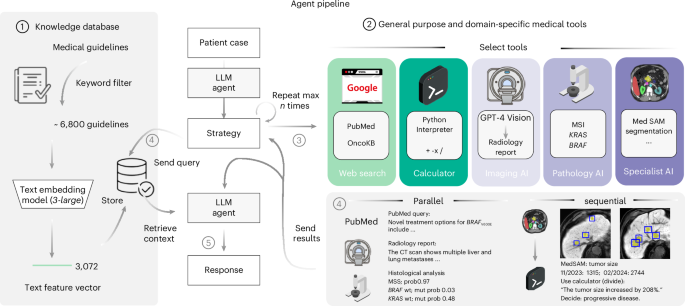Compared to GPT-4 alone, the integrated AI agent drastically improved decision-making accuracy from 30.3% to 87.2%.
Research Team
Key Facts
- AI agent autonomously uses clinical tools for oncology decision-making, selecting and applying relevant tools upon receiving clinical vignettes and questions.

- The system integrates vision transformers to detect microsatellite instability and KRAS and BRAF mutations from histopathology slides.

- Evaluated on 20 realistic multimodal patient cases, the AI agent achieved 87.5% accuracy in tool use and reached 91.0% correct clinical conclusions.

- The AI agent also accurately cited relevant oncology guidelines 75.5% of the time during evaluations.

- Compared to GPT-4 alone, the integrated AI agent improved decision-making accuracy drastically from 30.3% to 87.2%.

Key Stats at a Glance
Accuracy in tool use by AI agent
87.5%
Correct clinical conclusions by AI agent
91.0%
Accuracy in citing oncology guidelines by AI agent
75.5%
Decision-making accuracy improvement from GPT-4 to AI agent
30.3%
Decision-making accuracy of integrated AI agent
87.2%
